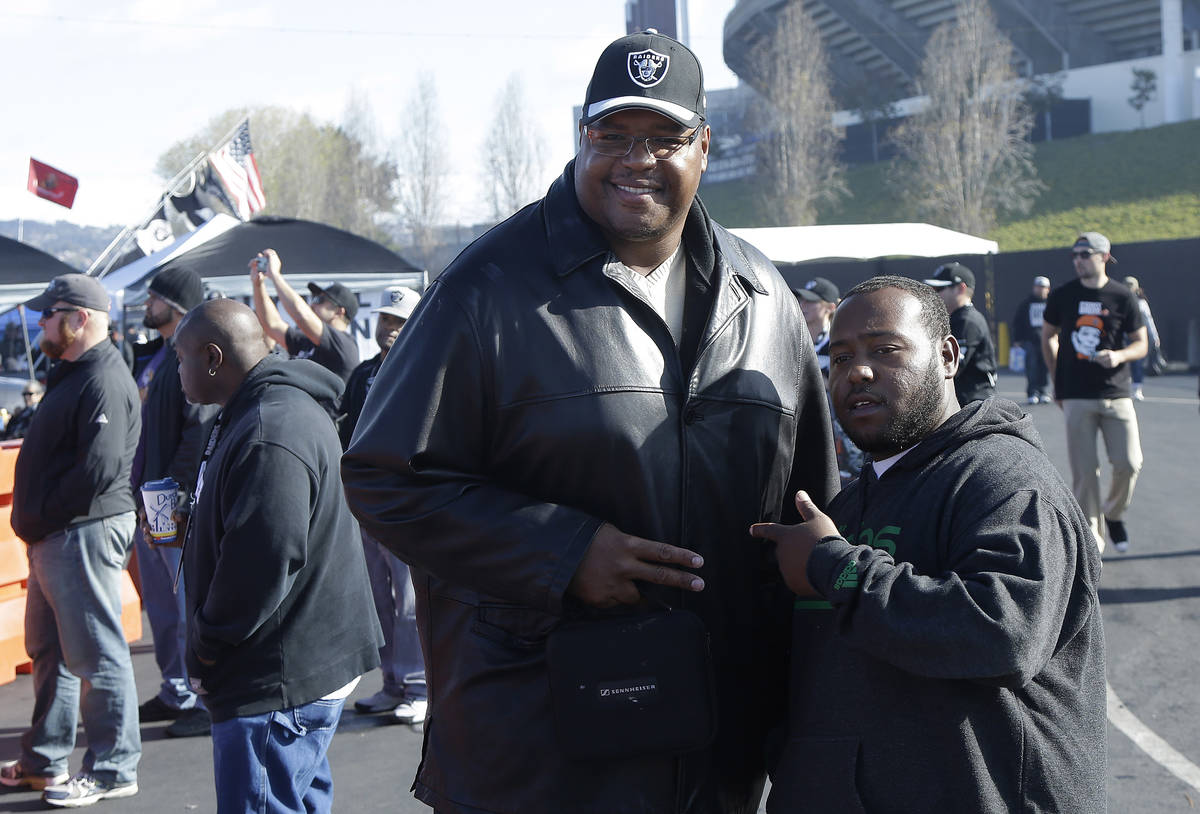Lincoln Kennedy took a big-picture road to the Raiders
The road that ultimately led former Pro Bowl right tackle Lincoln Kennedy to the Raiders was paved by foresight and an understanding of the importance of flexibility even at the expense of short-term financial gain.
The ninth overall pick in the 1993 draft by the Atlanta Falcons, Kennedy was uneasy from the get-go about his fit in head coach June Jones’ run-and-shoot offense. When it came time to negotiate his rookie contract, Kennedy and his agent structured the deal in a way that gave the former University of Washington star the flexibility to move on as quickly as possible if things didn’t work in Atlanta.
“My first contract was three years, $3 million,” Kennedy said. “We took less money because we needed the leverage to get out in case I didn’t like the run and shoot.”
Kennedy’s instincts were on point. His skill set was not a fit for the scheme Jones preferred. By his third year Kennedy was second string to a player he knew was not the offensive lineman he was.
At the conclusion of the 1995 season, now a restricted free agent, Kennedy was perfectly positioned to roll into Falcons general manager Ken Herock’s office and make the following demand:
“Either cut me or trade me,” Lincoln recalls telling Herock. “Or I’ll never play another day in the NFL.”
Not long after, Kennedy was traded to the Raiders for a fifth-round pick. The 6-foot-6, 335-pounder was a perfect fit in then-offensive line coach Joe Bugel’s system. Over the next six seasons, Kennedy made 109 starts while appearing in three Pro Bowls. In the process, a lifelong relationship began with the Raiders that continues to this day with Kennedy serving as the color analyst on their radio broadcasts.
None of which might have happened had Kennedy not had the foresight to think big picture when negotiating his first contract.
Kennedy is reminded about that kind of maturity as he ponders an NFL season that will unfold under the heavy cloud of COVID-19. It’s one that will demand an open mind, responsibility, flexibility and trust between everyone from players to coaches to the equipment staff.
To stay safe, Kennedy said it will require everybody being smart and responsible when they go home at the end of each workday to protect themselves, their families and the co-workers they return to each day.
”I’m hoping the true leaders of the teams will stand up and say that, because it needs to be said,” Kennedy said.
If not, Kennedy worries how feasible it is to maintain the necessary level of health without a bubble-like protection, such as the one employed by the NBA.
“When you talk about an 80-man roster and coaches and trainers, you’re talking about 130 people. You’re talking about the people who bring the food and support staff. That’s a lot of people and exposure,” Kennedy said. “And then you’re going to tell me a 21- or 22-year-old that just got drafted in the first round is going to go home to his apartment or condo and house and sit on his hands the rest of the night?
”That’s not being realistic. And it’s not being practical.”
That said, Kennedy believes the season will happen. He’s just not sure how similar teams will look in November compared to September.
“You’re going to have notable names (get) the virus. But it’s almost like a Broadway play, the show must go on,” Kennedy said. “They’re just gonna plug and play other people. But because of the demand of the general public for a return to normalcy of some sense, people will still watch it. It will still get the ratings.”
Contact Vincent Bonsignore at vbonsignore@reviewjournal.com. Follow @VinnyBonsignore onTwitter

















